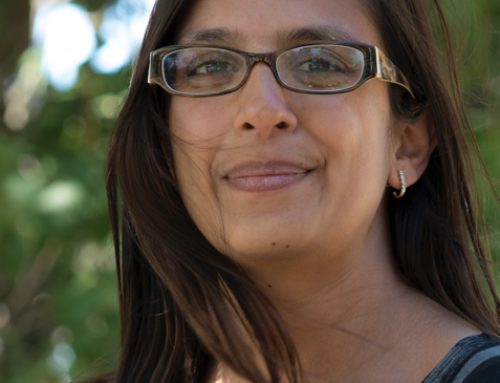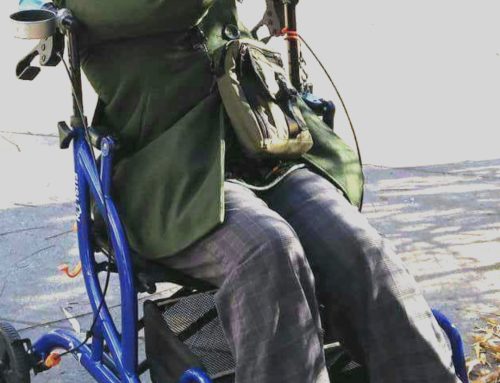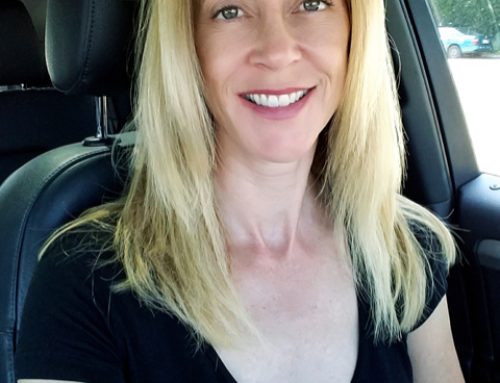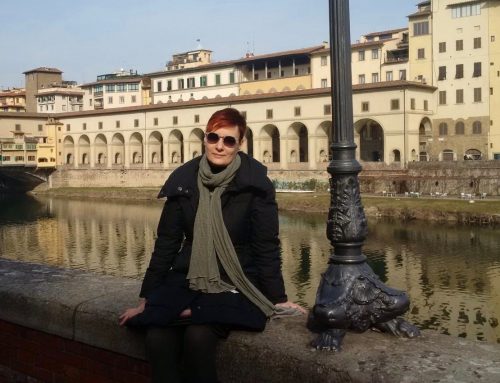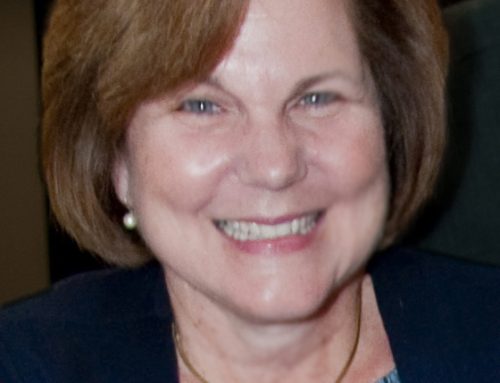“How are we doing today?”
“I’m fine. However, I can’t answer for you. You’ll have to decide for yourself how you are. I’m no judge of that. What’s your name? I can’t read it. They make these name tags so tiny nowadays.”
“Kayleigh.”
“I cannot imagine a future populated by people named Kayleigh or Breanne or Jayden. Those are names for perpetual children. My name is Mildred Mendelson. That is an adult’s name. Yes, yes, I know what you’re thinking. You’re thinking, I’m glad I’m only twenty-two and not her. Don’t tell me different. If I were twenty-two and looking at me, I’d be thinking the same thing. The only reason I’m here, you know, is that the doctors think I have dementia. Just the early stages, mind you. They asked me who the prime minister is, and I said R. B. Bennett; so they put me in here. But that’s because I was thinking back to when I was just a little girl, and my grandmother Anna was a friend of R. B. Bennett. He had one of the first cars in Calgary, and he crashed it into a pole right near Isaac Freeze’s store on Stephen Avenue. He said he would never drive again. He was so embarrassed at all the crowds that gathered. That car, I believe it was a McLaughlin.
“But they pounce on every little thing, these doctors. They just want to put me away to make room in the world for younger people. I was taking up too much space, breathing too much of the air they had appropriated for themselves. The doctor asked me to draw a clock; but I didn’t do it well because I’m not an artist, not because there’s anything wrong with my mind. I got poor grades in art all through school. I couldn’t draw a ball properly in those days, but they didn’t put me away for it back then, did they?”
“Do you know where you are, Mrs. Mendelson?”
“I’m in this chair, for God’s sake. I’m in Lilac Haven. Why do they call it Lilac Haven when there isn’t a lilac bush on the property? And it’s certainly no haven, either. Such trivia. I was talking about something else. You should have seen the fuss my niece, Stefanie, made because I drove my car off the road one time. It was only because I was distracted. I was thinking of my first crush, this boy named Barry with black hair and blue eyes, who sat next to me in ninth-grade science class. And suddenly while I was driving, I thought about Barry and wondered where he is today.”
“What did he end up doing?”
“If I knew that, I wouldn’t have driven off the road, would I? For all I know, he’s been taking the big dirt nap all these years. Maybe an aneurysm got him at fifty. Oh, and then Stefanie got mad at me because my house was a little untidy. She practically shouted at me, ‘You can’t live alone anymore!’ I said, ‘Stefanie, if I were forty and my house were a little messy, you’d be polite enough to keep your mouth shut. But because I’m ninety, you think I’ve gone flaky.’ Stefanie is definitely my late sister’s child. Sonia was always very brusque like that. She and I didn’t get along much. But I’ve always hated housework anyway. Ask Jack.”
“Mildred, Jack is no longer with us.”
“Who’s he with?”
“He passed on fifteen years ago.”
“What did he pass on? His chance to continue living with me? Well, I’m not crazy. You know who is, though—Minna Lowenstein. Every Friday, she would bake challah for her husband, Max, who is dead. And then one day, the rabbi came by for Shabbat services and she told him, ‘Rabbi, I need advice. Every Friday, I bake challah for my late husband, Max. But now, Max has told me he’s met another woman in the world to come. Tell me, Rabbi, should I keep baking challahs for him?’ And the rabbi said, ‘Yes, you should, because it might not work out between them.’ So, she baked challahs. Two Fridays later the rabbi is there again, and Minna rushes over to him. ‘Rabbi,’ she says, ‘you were right! It didn’t work out! He’s back with me!’ She was glad she hadn’t deprived that cheating Max of his challahs after all.”
“I’m sure Max is watching over her from heaven. Just as Jack is watching over you.”
“I certainly hope not! There are certain bodily functions I wouldn’t want Jack to see me performing, dead or alive. You know who else is crazy—Mary Turner. She said to me yesterday, ‘Mildred, do you think I’m going flaky? I saw these little men all dressed in red like the guards at Buckingham Palace; they came in under the door and cleaned up my whole room! Mildred, am I flaky?’ I told her, ‘Who cares if you’re flaky, Mary? Your room is !’”
“Do you know what day it is today, Mildred?”
“No. Nor does it matter. All the days are the same in here.”
“It’s Wednesday. We’re going to be making Hanukkah decorations in the social hall.”
“You think I want to do that kindergarten stuff just because I’m old? I never liked it when I was in kindergarten, why would I like it now? I don’t want to be infantilized. I want to read The Economist. Jack always subscribed.”
“Stefanie will bring it when she comes.”
“I think it was in The Economist that I read this story about the latest study on aging. These scientists asked a group of people in their seventies to think of themselves as age thirty-five. When they did, their bodies actually became healthier; their aches and pains went away, and they visited the doctor much less than another group of seventy-year-olds who were told to think of themselves as being their right age.”
“Do you want to try it?”
“Well, if I could start over in my memory thinking of myself as going through my life all over again, day by day, I could make my body believe it’s at all those ages. Then, I could live to one hundred and eighty because it would take me another ninety years to imagine myself in my life again.”
“Where would you start?”
“At age one. That’s my first memory. I was at my grandmother’s apartment. She lived in the Hillhurst neighbourhood. That was practically the outskirts of the city then. You could smell the Bow River from the open windows. Some other people were there, too. Don’t ask me who they were. Nobody introduces guests to a child of one. The carpet was a drab yellow-gold; and I was standing up, clutching the edge of a bloated and very ugly purple chair. I was so little that I could see straight underneath the hanging folds of the white cloth on the dining-room table. I saw ladies’ legs in high heels on the other side. My father was kneeling down, beckoning me to walk to him: ‘Walk to me. Come on. You can do it.’ I didn’t think I could do it. The carpet was a dizzy desert of yellow. But, I let go of the chair, took two shaky steps, was suddenly overwhelmed with vertigo from that carpet, and fell forward on my hands as babies do. Everyone in the room laughed at me, and I felt my face burn with humiliation and shame.”
“That sounds like a cool memory. Very few people can remember back that far. I know I can’t.”
“It is not a ‘cool’ memory. It’s a devastating one. It shows you that babies have feelings which nobody gives them any credit for having. Remember that, next time you laugh at a baby who’s trying to walk.”
“Why are you crying? What’s the matter? Here, would you like a tissue?”
“It’s struck me. It was the first devastating moment in a world of hurt piled on hurt, humiliation on humiliation. My introduction to the world of my fellow human beings—at only age one.”
“Is there something happier that you can think of instead?”
“You start out alone, and you end alone.”
“Life is like that for everyone, Mildred.”
“Yes, but it’s happening to me. To me, you understand. It has happened to millions of people before me, but I wasn’t experiencing their pain. Do you know what the children in my grade school class called me? The science teacher, Mrs. Gold, was talking to us about mildew; and so my friend Shirley started calling me Mildew instead of Mildred. I was never Millie, by the way. I always hated that sobriquet. My best friend turned on me, and all the children took it up! I was forever Mildew after that. My sister, Sonia, had a much prettier name than I did.”
“That was cruel of those children.”
“Don’t just parrot things. Say something original if you’re capable of it. Then, in high school, oh, the girls were so mean to one another. How can anybody think that if women were in charge, they’d fix everything that’s wrong with governments and the world? They wouldn’t! They’d scratch each other’s eyes out and backstab—they’d do each other dirt.”
“But you got married and had children. Those were happy times.”
“You’re mistaking me for someone else in here. Do all old ladies look alike? Do you mix us up? I had four miscarriages. I never had any children who survived. And now Jack is gone, too. Maybe if I’d married Barry, things would have been different.”
“Everybody wonders those things.”
“No, everybody does not wonder those things. They don’t wonder what would have happened if I’d married Barry instead of Jack. Nobody’s ever heard of me or Jack or Barry. And soon, we’ll all be forgotten. Do you know that I used to drive my friends to the Foothills Hospital? One day Stefanie took me there because I sprained my ankle. The nurse saw that I was old. I was eighty-seven. She said, ‘Do you come here often?’ I said, ‘No, but I bring my friends here a lot.’ And now, look at me, look where I am.”
“Would you like me to bring something to calm you? The doctor left a note on your chart that you could have Ativan if you need it.”
“There’s nothing that can calm me. Life isn’t calm, Kayleigh. Have you ever looked around and wondered how you got to be where you are? Sometimes, I do. Why am I living in Calgary? Because my parents immigrated here from Russia. Because they believed what Clifford Sifton told them about Canada being a golden land. I know you’ve never heard of Clifford Sifton. Nobody has anymore. Nobody knows history from borscht, as my father used to say. My parents ran a grocery store. Kids used to phone the store. They’d say, ‘Have you got Prince Albert in a can?’ My father would reply, ‘Yes, we do,’ and the kids would say, ‘Well, let him out!’ But why wasn’t I born the daughter of rich horse breeders in Virginia? Or someone in a shanty in Appalachia? Or Mary Pickford? I’m sure you’ve never heard of her, either. Where are all these dead people now? Where did they go, Clifford Sifton, R. B. Bennett, my parents, Jack? It must be very crowded and noisy wherever they are; there are so many people there.
“Although, I don’t think I’d like to be one of the people in those crowds of thousands of protesters in Third World countries. I see pictures of people in magazines and I think, who are these people? What are their names? What are their lives about? And why wasn’t I born one of them, instead of ending up as Mildred Mendelson? Just what the mercy is going on with all that? Who decides such things?”
“That’s the big mystery of all time.”
“What an inadequate thing to say. You’re only twenty-two, so you can’t possibly understand. I was already old when you were born. Do you know who I am, who all of us are in this place? We are people from a few years ago. That’s who we are. Do you know that Clifford Sifton was Minister of the Interior under Laurier? Surely to God, you know who Laurier was.”
“Wouldn’t you like to help make Hanukkah decorations? It might take your mind off things.”
“That is a very hard thing to task Hanukkah decorations with—the duty of taking my mind off the great mysteries of life. Is Stefanie coming today?”
“I’m sure she will. She’ll bring you The Economist. Do you want me to wheel you back to your room, so you can rest up for her visit?”
“No. Wheel me to the social hall. I had better help with Hanukkah decorations, just in case Jack is watching me from the world to come. He might think it would do me good. I don’t want to upset him if he is somehow alive somewhere. I don’t want to hurt him. There’s already too much hurt in the world. I want them to be able to say of me that I didn’t cause more hurt and more pain. Do you think I’ve achieved that?”
“Of course you have. Why, what’s the matter all of a sudden? We’re going to have a lot of fun decorating for Hanukkah, aren’t we?”
“We, we, we. Who are we?”
April 2017

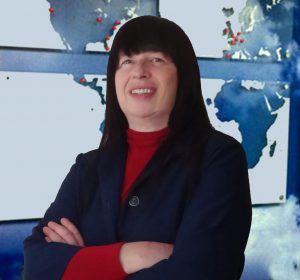 Naomi Lakritz is a journalist who has spent more than 30 years at newspapers. She is a former columnist for the Calgary Herald and the Winnipeg Sun. She started her career at the supermarket tabloid, the National Examiner, where she made up stories about Elvis’s ghost, Bigfoot and alien abductions. Naomi currently runs her own freelance editing service. In her spare time, she enjoys reading, taking ballet classes and wandering through Calgary’s Nose Hill Park with her dog, Bridey.
Naomi Lakritz is a journalist who has spent more than 30 years at newspapers. She is a former columnist for the Calgary Herald and the Winnipeg Sun. She started her career at the supermarket tabloid, the National Examiner, where she made up stories about Elvis’s ghost, Bigfoot and alien abductions. Naomi currently runs her own freelance editing service. In her spare time, she enjoys reading, taking ballet classes and wandering through Calgary’s Nose Hill Park with her dog, Bridey.